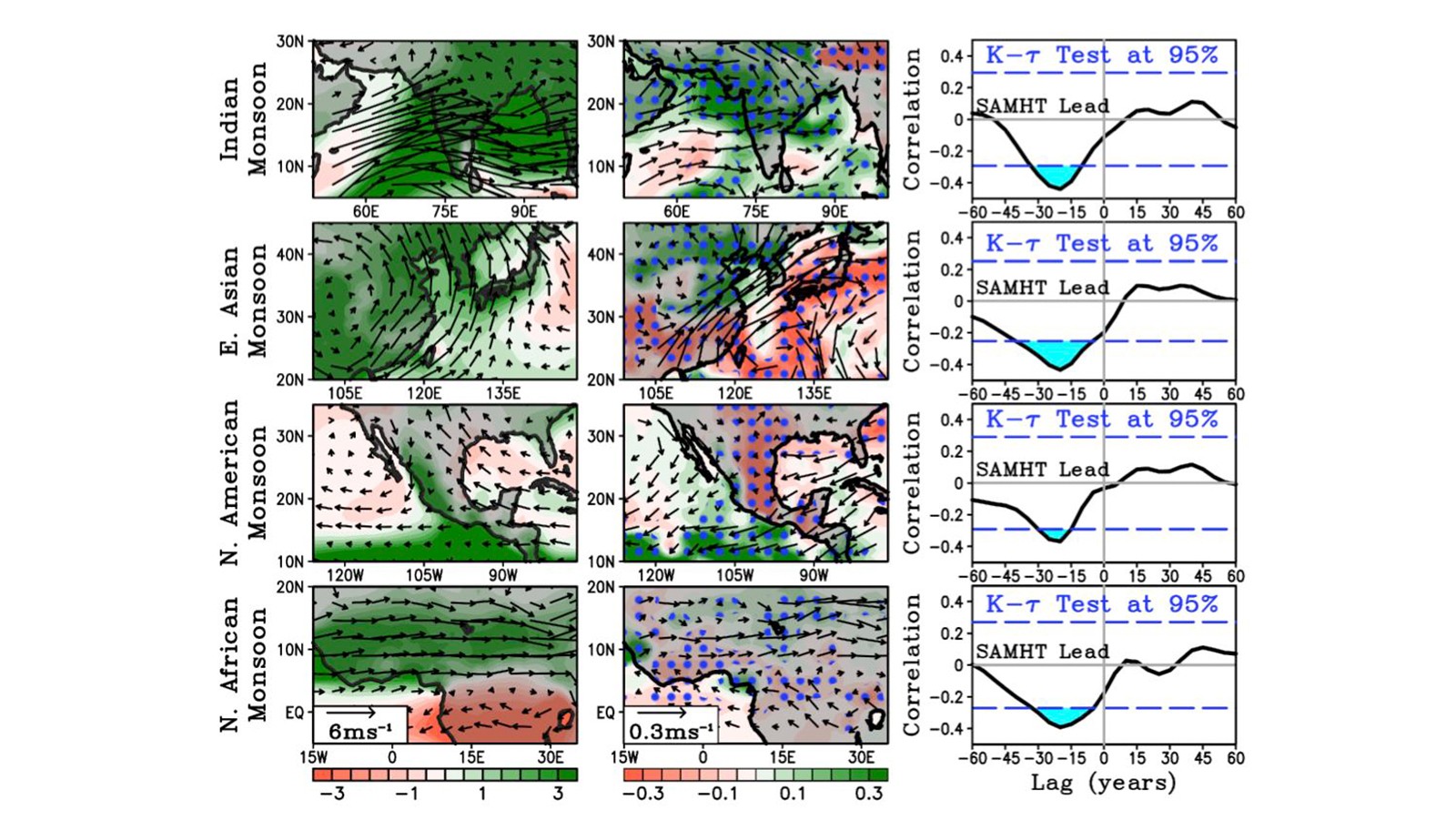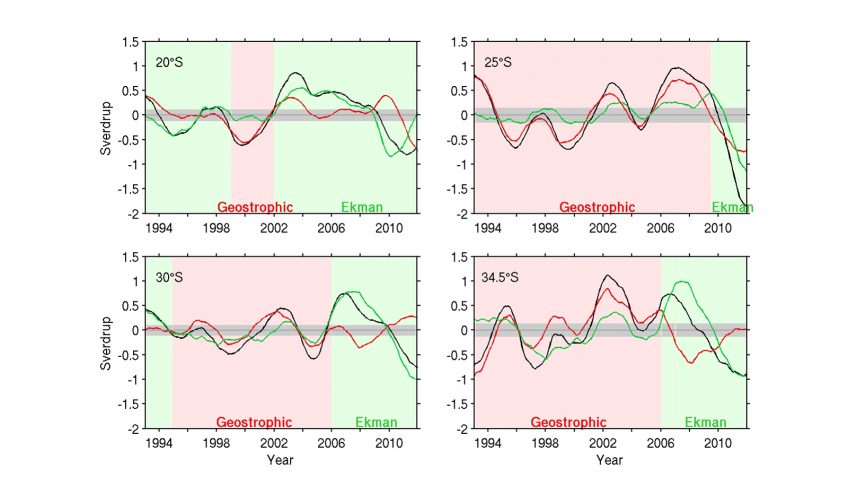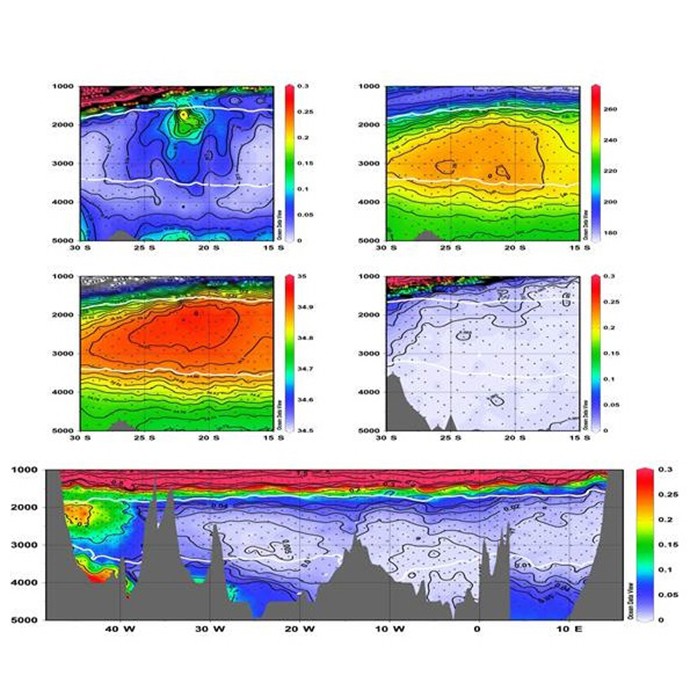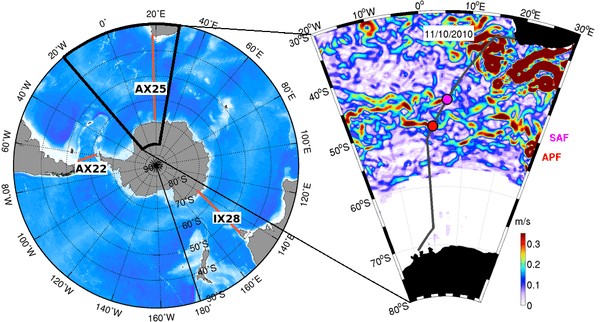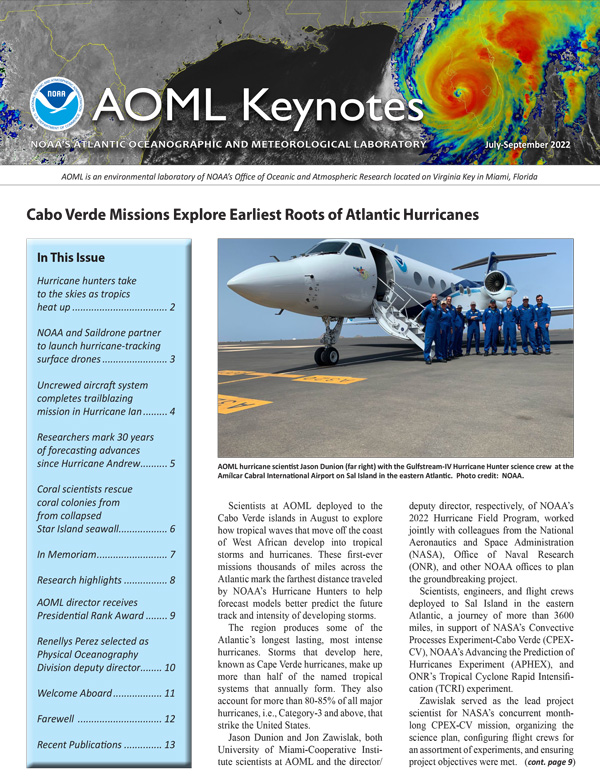Meridional heat transport in the South Atlantic reveals links with global monsoons
A recent paper published in the Journal of Climate led by PHOD researchers Hosmay Lopez, Shenfu Dong, Sang-Ki Lee, and Gustavo Goni provides a physical mechanism on how low frequency variability of the South Atlantic Meridional Heat Transport (SAMHT) associated with the Atlantic Meridional Overturning Circulation ( AMOC) may influence decadal variability of atmospheric circulation and monsoons. This is the first attempt to link the South Atlantic Overturning Circulation variability to weather and climate.
